
Route taken by Burton and Speke from Zanzibar to Lake Tanganyika and back. Source: Wikipedia
During his exploratory trip to Lake Tanganyika with John Henning Speke,Sir Richard Burton gathered information on local crops and diets – most of which was given by Arab and Swahili informants – not local inhabitants.
While the data are interesting, Burton does not write with the flair or direct involvement with local crops and cuisine in the way that either Livingstone or Baker do (both discussed in other blogs). His interpretation of African people and cultures is negative – or, patronizing at best – these being interpretations common in Western countries at that time.
As well, data about different areas and people are sometimes mixed together and the resulting generalizations are not always valid – or are misleading. For example, the taking of blood from cattle as part of the diet was practiced by some pastoral groups, but not all groups. Describing certain practices as belonging to ‘the African’ further complicates matters. But with those provisos, he does offer some useful information.
Burton – The Lake Regions of Central Africa, Vol. 2 1860
Karngwah [a type of coffee bean] … a small wild coffee, locally called mwami. Like all wild productions, it is stunted and undeveloped, and the bean, which, when perfect, is about the size of a corking-pin’s head, is never drunk in decoction. The berry, gathered unripe, is thrown into hot water to defend it from rot, or to prevent its drying too rapidly-an operation which converts the husk to a dark chocolate color.
The people of this country chew it like tobacco, and, during visits, a handful is invariably presented to the guest. According to the Arabs, it has, like the kishr of Yemen, stimulating properties, affects the head, prevents somnolency, renders water sweet to the taste, and forms a pleasant refreshing beverage, which the palate, however, never confounds with the taste of the Mocha berry.
…One of the inducements for an African to travel is to afford himself more meat than at home. His fondness for the article conquers at times even his habitual improvidence. He preserves it by placing large lumps on a little platform of geen reeds erected upon uprights about eighteen inches high, and by smoking it with a slow fire. Thus prepared, and with the addition of a little salt, the provision will last for several days, and the porters will not object to increase their loads by three or four pounds of the article, disllosed upon a long stick like gigantic kababs,
They also jerk their stores by exposing the meat upon a rope, or spread on a flat stone for two or three days in the sun; it loses a considerable portion of nutriment, but it packs into a conveniently small compass. This jerked meat, when dried, broken into small pieces, and stored in gourds or in pots full of clarified and .melted butter, forms the celebrated traveling provision in the East called kavurmeh: it is eaten as a relish with … boiled grains.
When meat is not attainable and good water is scarce, the African severs one of the jugulars of a bullock and fastens upon it like a leech. This custom is common in Karagwah and the other northern kingdoms, and some tribes, like the Wanyika, near Mombbasa, churn the blood with milk.
The daily food of the poor is grain, generally holcus, maize, or bajri (panicum) ; wheat is confined to the Arabs, and rice grows locally, as in the Indian peninsula.
The inner Africans, like the semi-civilized Arabs of Zanzibar, the Wasawahili, and the Warnrima, ignore the simple art of leavening bread by acidulated whey, sour bean-paste, and similar contrivances universally practiced in Oman. Even the rude Indian chapati or scone is too artificial for them, and they have not learned to toast grain.
During the rains vegetables are common in the more fertile parts of East Africa; they are within reach of the poorest cultivator. Some varieties, especially the sweet potato and the mushroom, are sliced and sun-dried to preserve them through the year. During the barren summer they arc boiled into a kind of broth.
Related articles
- Sir Burton’s Recipe for Love, from 1001 Nights (dianabuja.wordpress.com)
- NEW – Burundi AA Kirirmiro Coffee! (coffeeam.wordpress.com)



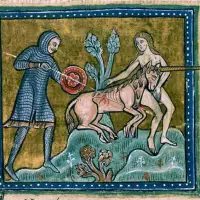

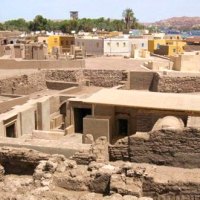
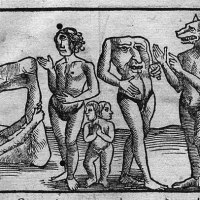
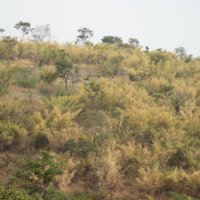

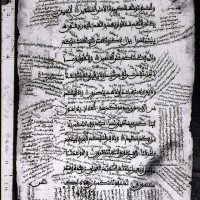
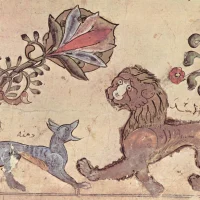
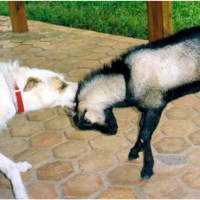














Pingback: A Greedy Ancient Egyptian Bureaucrat who Loved Fat « Dianabuja's Blog